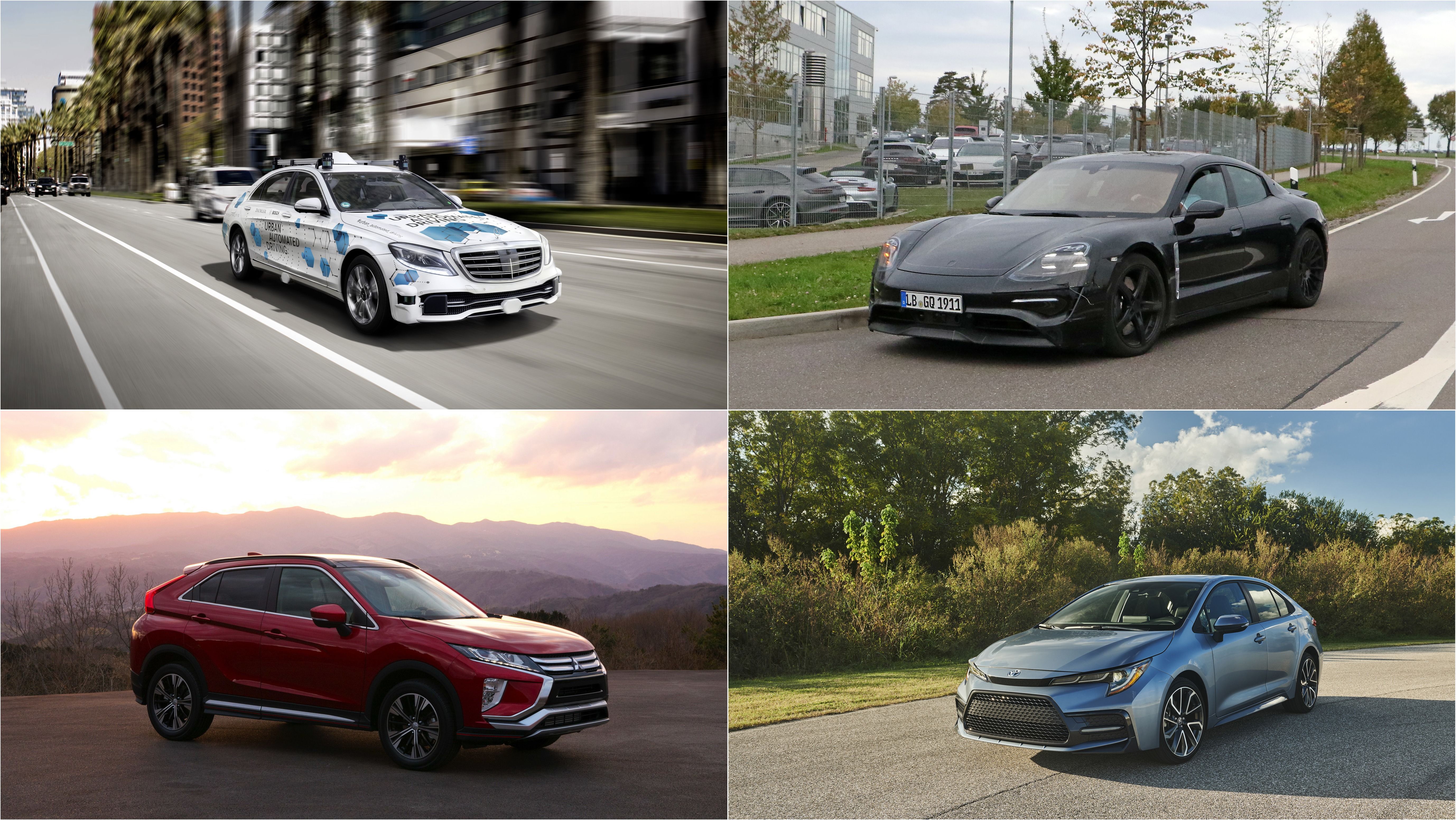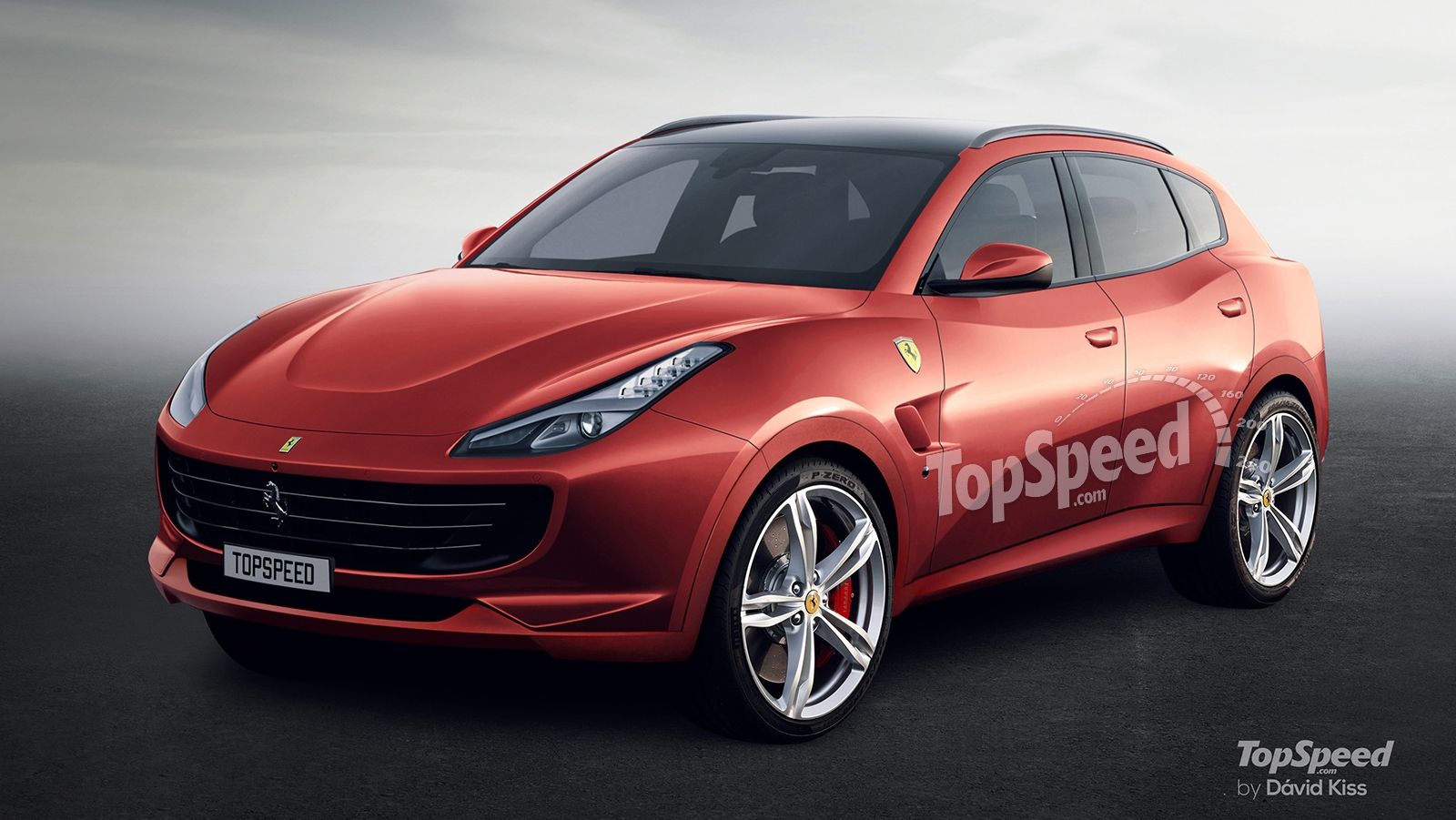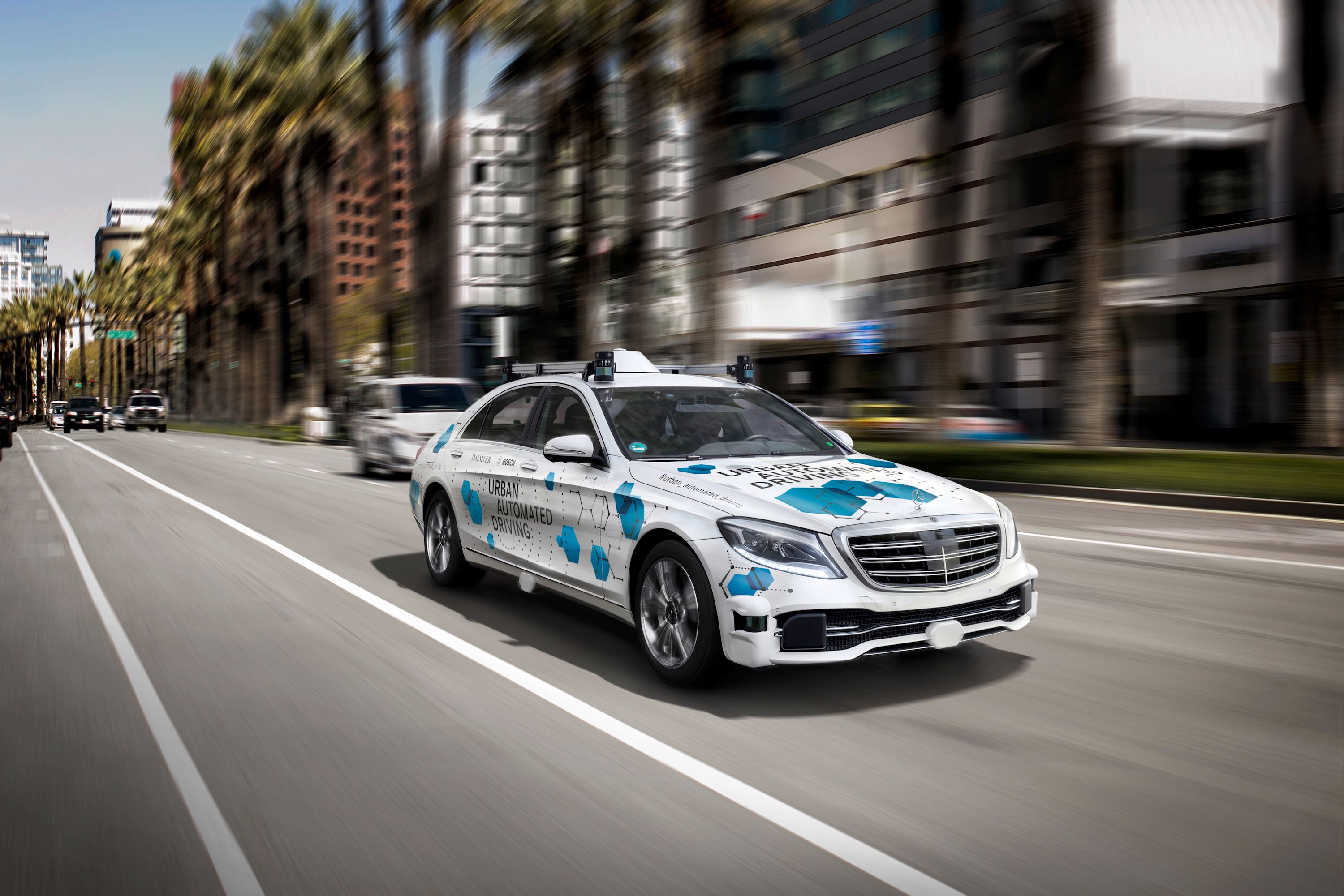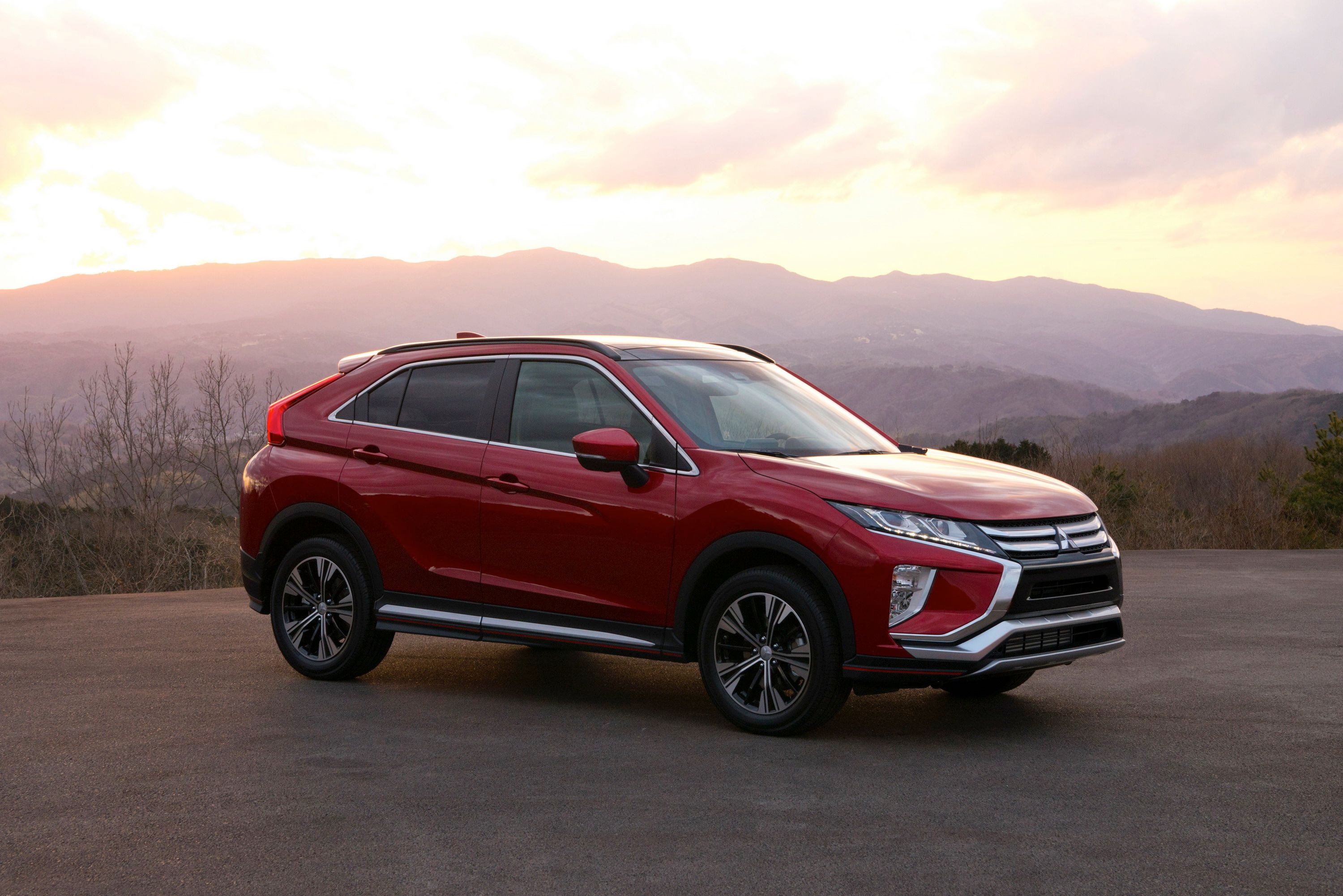2018 has been a pretty wild year with all kinds of crazy things happening. We've seen Volkswagen fall into another scandal, Lamborghini launch an SUV, EVs take over the planet, and sedans all but die off with Ford, for example, killing off every car in its lineup outside of the Ford Mustang - just to make room for SUVs. So, with the end of the year upon us, we've put together our very own predictions for next year. To put it simply, we think it's going to be an even crazier year than this one.
Michael Fira - Ferrari could bring more crossover-style vehicles to the market
Under new CEO Louis Camilleri, Ferrari has outlined a bold plan to introduce 15 new models by 2020. Of these, the most unusual has to be the Purosangue don't-call-it-an-SUV model. “This is an ambitious plan, but a doable one based on a concrete, detailed framework,” said Camilleri who took over after the passing of Sergio Marchionne.
Read our full speculative review on the 2020 Ferrari Purosangue.
Andrei Nedelea - EVs galore
Porsche Taycan, the production versions of the VW I.D. Crozz and I.D. concepts, maybe the Tesla Model Y high-rider, as well as the new Roadster are just some of the big names expected to join the all-electric car scene within the next year or two.
Volkswagen announced that its last ever generation of internal combustion engines would be launched around the year 2026. After that point, the German giant will pour all its resources into all-electric powertrains, and it’s very likely that most other manufacturers will adopt a similar strategy. Volvo, for instance, only uses three- and four-cylinder engines in its cars these days (even its larger offerings) and the extra power comes courtesy of forced induction and electrification, a stepping stone towards a fully electric future.
Read our full speculative review on the 2020 Porsche Taycan.
Jonathan Lopez - The Autonomous Wars Will Heat Up In A Big Way
We’ve been hearing about the rise of autonomous driving technology for years and years now, with experts speculating about the numerous ways it will revolutionize the industry and completely change the way people get around. Now, it’s looking like it’s time for the rubber to hit the road for self-driving cars.
Indeed, the race to be the first to bring this technology to market is coming to a boil. Companies are collaborating to help expedite the development process, such as we’re seeing with Daimler and Bosch, which recently announced they are ramping up public testing for a new autonomous ride-hailing service in San Jose, CA.
But it’s not just automakers - more traditional ride-hailing services like Uber also have a pony in this race, which makes sense from a business perspective. After all, if you don’t have any drivers taking a cut, you can bet that bottom line will get a whole lot fatter. Companies like Waymo are already on the cusp of such a service.
So, what comes next?
For starters, as more driverless cars hit the road, there are bound to be more accidents, and public outcry is sure to respond accordingly. Unfortunately, this is pretty much inevitable when it comes to the development of autonomous technology, given the random nature of real-world driving and the inability to accurately recreate it in a laboratory.
At the same time, we could see the tech applied in new and interesting areas. For example, how about autonomous race driving?
It’s an exciting time to be into cars, that’s for sure, and it’s looking more and more like the future of transportation will be sussed out in the next few years. Stay tuned as we bring you all the latest and greatest developments.
Safet Satara - Waiting for Mitsubishi
Now, after more than a year has passed since the Renault-Nissan Alliance became the Renault-Nissan-Mitsubishi alliance, we are yet to see and hear about some radical changes happening within the Mitsubishi part of this “all-equal” alliance. While Mitsubishi did have that Drive for Growth strategic plan that included the introduction of 11 new or facelifted models, we have yet to see dramatic and radical moves in the direction of continuous development.
Sure, that e-Evolution concept from the 2017 Tokyo Motor Show looked promising, and the Eclipse Cross isn’t that bad, but the thing is that I expect more.
That is why I am positive we will hear a lot more from Mitsubishi in the coming year. Something about a Mitsubishi electric car?
It is possible to conceive something like this. See, Renault-Nissan-Mitsubishi did announce the development of an all-new only-EV platform that will support a whole line of EVs (mainly SUVs). I can imagine some of them being branded Mitsubishi.
Mitsubishi Chief Designer already inferred something about the radical moves I just mentioned.
The chief designer, Tsunehiro Kunimoto said, "Just because it's C-segment, it doesn't mean it has to be a very conventional hatchback. Maybe we can create a new type of hatchback vehicle. We're thinking quite radically."
And he was talking about a hatchback. A high-riding hatchback that looks a lot like the e-Evolution Concept. That’s a good thing. You know what, it will probably take the name Lancer. The Eclipse became a crossover; the Lancer could very well do the same.
So, while Mitsubishi is currently focused on making the Lancer an appealing prospect for today (probably with hybrid propulsion and optional AWD), the larger game at play includes the reimagination of the Outlander and the Outlander Sport, as well as the Montero/Pajero.
Read our full review on the 2018 Mitsubishi Eclipse Cross.
Kirby Garlitos - The Demise of the Sedan Will Continue
Will 2019 be the year that we finally write the sedan’s obituary? It seems like a far-fetched notion, but the numbers back it up. Sales of sedans in the U.S. have plummeted in recent years as more buyers turn their attention towards crossovers, SUVs, and light trucks. The decline of sedans isn’t limited to just one or two automakers. Everyone’s feeling the pinch. According to Cox Automotive, sales of compact sedans are down 18.4 percent in November 2018 and sales of midsize cars aren’t any better, declining by 15 percent in the same time period.
Even auto giants like Toyota and Honda haven’t been immune to the sales crunch. Toyota’s car sales are down 17.3 percent, and that includes sales of models like the Camry and the Prius. Honda’s in the red, too, with a 12.6-percent decline in car sales in November 2018. For the most part, the two Japanese automakers have remained committed to the market, in part because they have the most established models in the segment. As hard as it is to see sales of sedans plummet in 2018, it’s even harder to imagine a world where models like the Toyota Camry, Toyota Corolla, Honda Civic, and Honda Accord are pulled out in the U.S. market.
Unfortunately, the same can’t be said for American manufacturers like Ford and General Motors. The Blue Oval already announced earlier this year that it was halting sales of its passenger cars, including the Fiesta, Fusion, and Taurus. General Motors joined that boat last month, announcing that it, too, will halt sales of most of its passenger cars. Say goodbye to models like the Cruze, Impala, and Volt. Don’t even think about Fiat Chrysler Automobile, which ditched the sedan market a long time ago. It’s interesting that of the three major American auto brands, only FCA is on pace for increased sales in 2018. The biggest reason for that? Jeep, which, if you didn't know, is an SUV brand.
2018 has been a bloody year for sedans, but 2019 could be even worse as more people gravitate towards SUVs and pickups. The trend could be mitigated by the arrival of hybrids and electric cars, but neither will have the volume, at least for the time being, to compensate for the declining demand of traditional gas-powered sedans. So brace yourselves, folks. 2019 could be the year we finally pour a 40 for the sedan.
Read our full review on the 2018 Toyota Camry.
Ciprian Florea - Auto Industry Growth Will Slow Down
Automotive sales will continue to grow in 2019, despite new challenges like trade and tariff disputes and higher fuel prices, but it will slow down compared to recent years.
According to Moody's, it's the threat of U.S. tariffs that will cause vehicle sales to slow down for the most part.
Global light vehicle sales will be on the decline too, expected to grow 1.3 percent in 2019 versus 1.5 percent in 2018. Western European sales are going down as well, from a two-percent growth in 2018 to only 0.5 percent in 2019. On the flipside, auto sales in China will increase next year. Having declined from three percent in 2017 to two percent in 2018, sales in the world's largest market will see a 2.5-percent grow in 2019.
Likewise, Japanese sales will increase to 1.3 percent following a decline in 2018. In emerging markets like India, Brazil, and Russia, consumer demand for new cars will remain strong.
On top of trade and tariff disputes and rising fuel prices, car sales could also decrease in 2019 due to stricter emissions-reducing targets and investment in new technologies like semi- and fully-autonomous systems.




